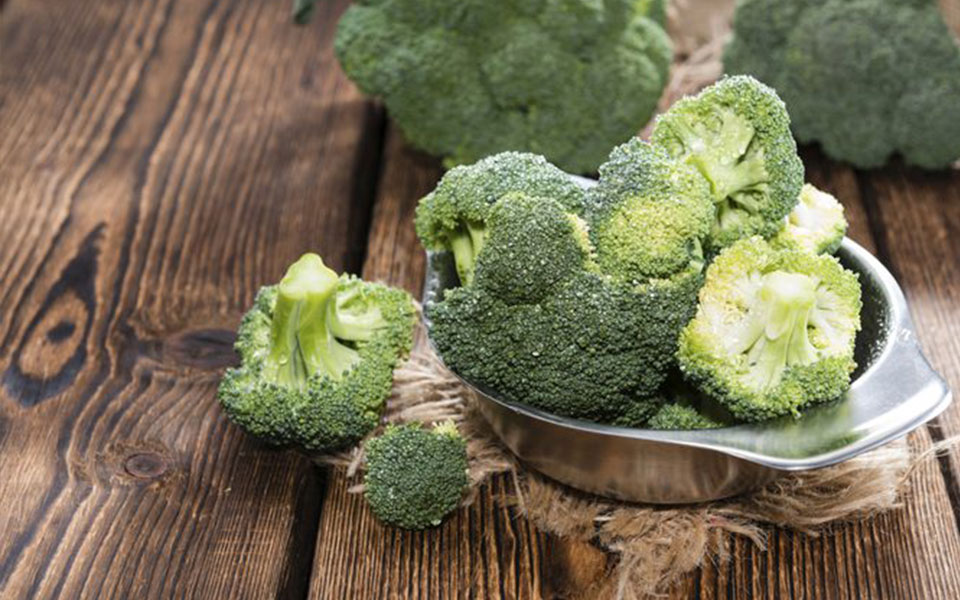Sydney, April 4, A study has found eating cruciferous vegetables like cabbage and cauliflower three or more times per day can prevent hardening of neck arteries and also decrease the risk of heart diseases.
Researchers observed a 0.05 millimeter lower carotid artery wall thickness between high and low intakes of total vegetables.
"That is likely significant, because a 0.1 millimetre decrease in carotid wall thickness is associated with a 10 per cent to 18 percent decrease in risk of stroke and heart attack," said lead author Lauren Blekkenhorst, from the University of Western Australia.
In addition, each 10 grams per day higher in cruciferous vegetable intake was associated with 0.8 per cent lower average carotid artery wall thickness.
"After adjusting for lifestyle, cardiovascular disease risk factors (including medication use) as well as other vegetable types and dietary factors, our results continued to show a protective association between cruciferous vegetables and carotid artery wall thickness."
For the study, detailed in the Journal of the American Heart Association, the team distributed food frequency questionnaires to 954 Australian women aged 70 and older.
The women noted their vegetable intake in a range from "never eating vegetables" to "three or more times per day".
Vegetable types included cruciferous, allium (for example, onions, garlic, leeks and shallots), yellow/orange/red, leafy green and legumes.
Sonograms were used to measure carotid artery wall thickness and entire carotid trees were examined to determine carotid plaque severity.
However, due to the observational nature of this study a causal relationship cannot be established.
"Still, dietary guidelines should highlight the importance of increasing consumption of cruciferous vegetables for protection from vascular disease," Blekkenhorst said.
Let the Truth be known. If you read VB and like VB, please be a VB Supporter and Help us deliver the Truth to one and all.
Ottawa (PTI): Three Indian nationals have been arrested by Canadian police on an anti-extortion patrol and charged after bullets were fired at a home.
Harjot Singh (21), Taranveer Singh (19) and Dayajeet Singh Billing (21) face one count each of discharging a firearm, and all have been remanded in custody until Thursday, the Surrey Police Service (SPS) said in a statement on Monday.
The suspects were arrested by patrol officers after an early morning report of shots fired and a small fire outside a home in Surrey's Crescent Beach neighbourhood, the LakelandToday reported.
On February 1, 2026, the SPS members were patrolling in Surrey’s Crescent Beach neighbourhood when reports came in of shots being fired and a small fire outside a residence near Crescent Road and 132 Street.
The three accused were arrested by SPS officers a short time later, the statement said.
SPS’s Major Crime Section took over the investigation, and the three men have now been charged with Criminal Code offences, it said.
All three have been charged with one count each of discharging a firearm into a place contrary to section 244.2(1)(a) of the Criminal Code.
The investigation is ongoing, and additional charges may be forthcoming. All three have been remanded in custody until February 5, 2026.
The SPS has confirmed they are all foreign nationals and has engaged the Canada Border Services Agency, it said.
One of the suspects suffered injuries, including two black eyes, the media report said.
Surrey police Staff Sgt. Lindsey Houghton said on Monday that the suspect had refused to comply with instructions to get out of the ride-share vehicle and started to "actively resist."
"As we were trained, he was taken to the ground and safely handcuffed," said Houghton.
A second suspect with a black eye was also injured in the arrest after refusing to comply, Houghton said.
The arresting officers were part of Project Assurance, an initiative that patrols neighbourhoods that have been targeted by extortion violence.
Houghton said the Canada Border Services Agency (CBSA) is also involved because the men are foreign nationals, and the trio may face additional charges.
It's not clear if the men are in the country on tourist visas, a study permit, or a work permit, but Houghton said CBSA has started its own investigation into the men's status.
Surrey has seen a number of shootings at homes and businesses over the last several months, but there's been an escalation since the new year.





